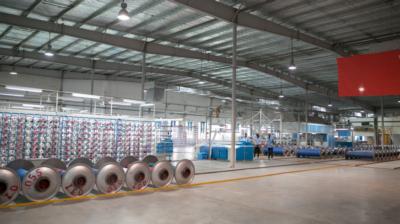Journal Article
| 2011
ValueAdded of ClusterMembership for MicroEnterprises of the HandloomSector in Ethiopia
By contrasting the performance of clustered microenterprises with that of dispersed ones in the handloomsector in Ethiopia, this study shows that clustering significantly increases profit. To correct for selection bias, we match clustered and dispersed microenterprises that share similar observable characteristics except for being clustered both in urban and rural areas. Results show that clustering is more profitable in urban than rural areas. It is also found that regional-specific factors determining clustering of microenterprises are different in urban and rural areas, highlighting the need to focus on local circumstances when formulating policies to promote clusters.






